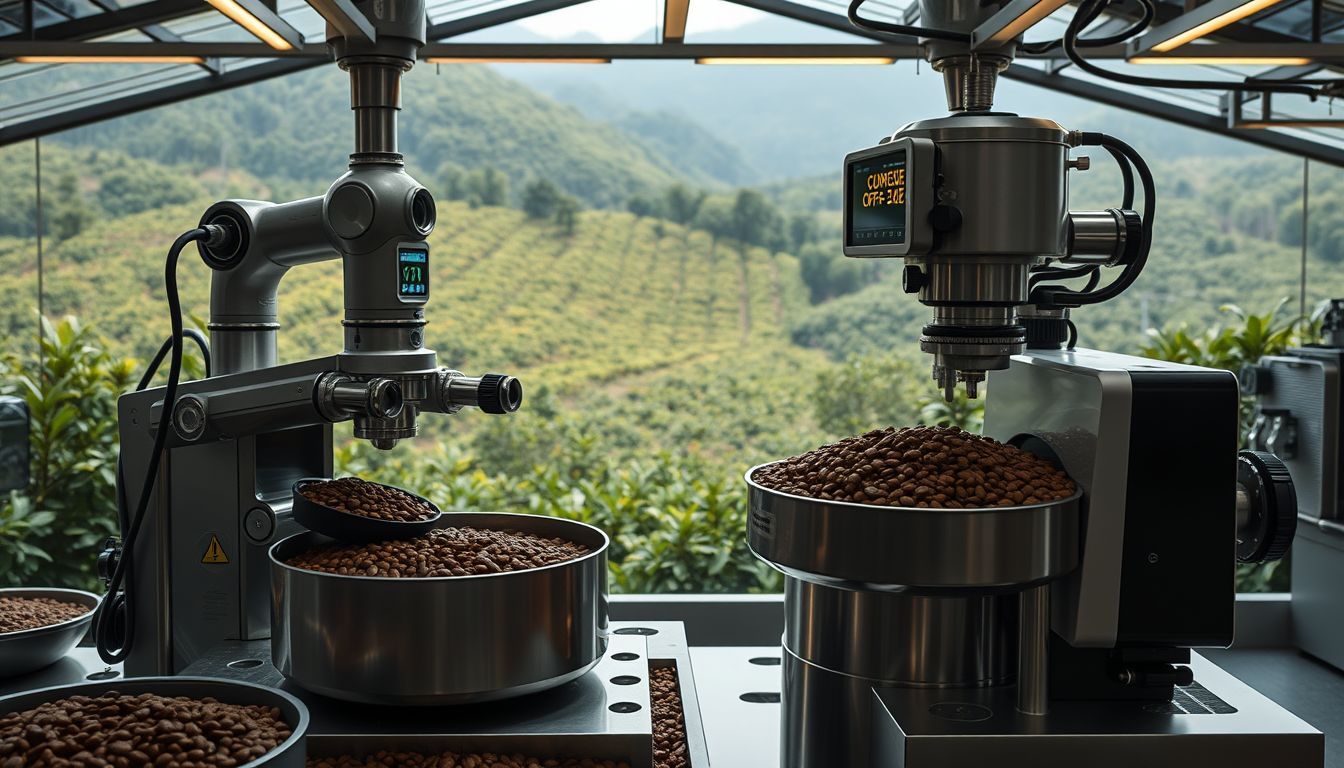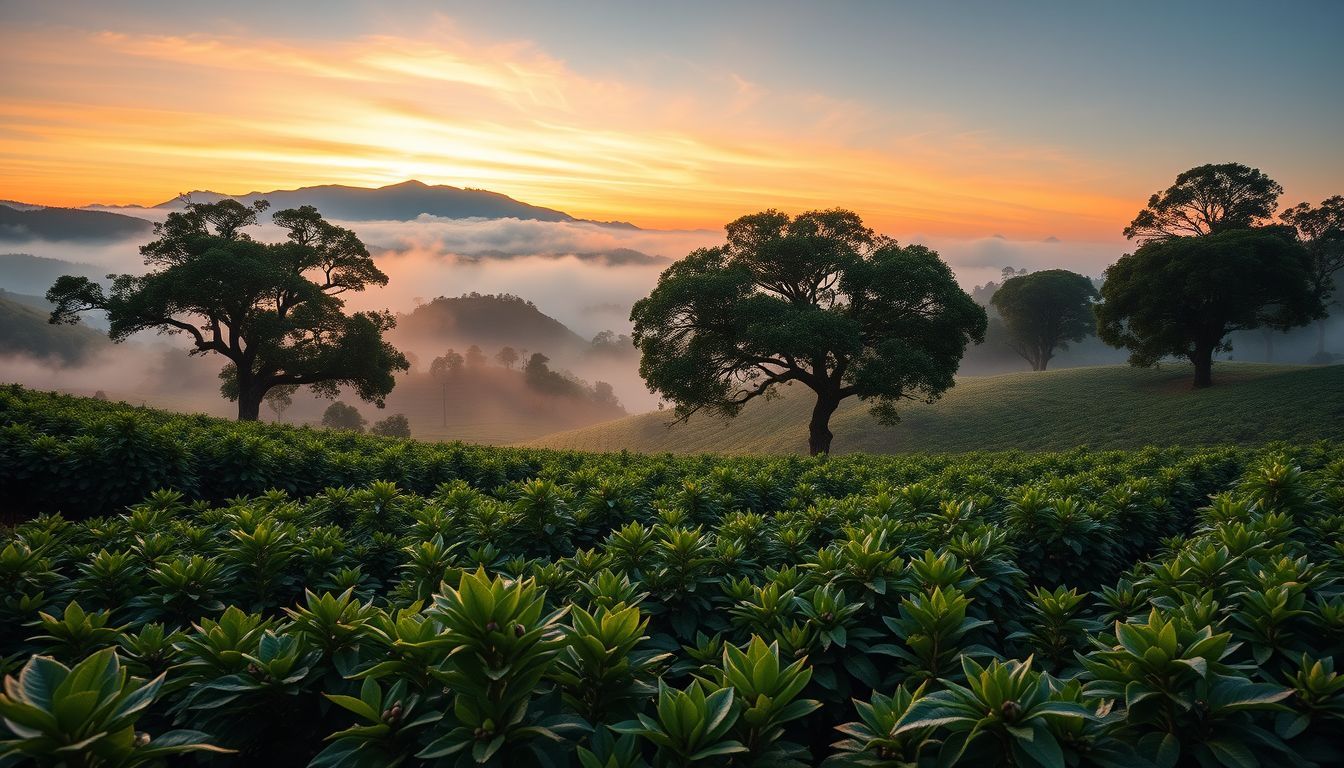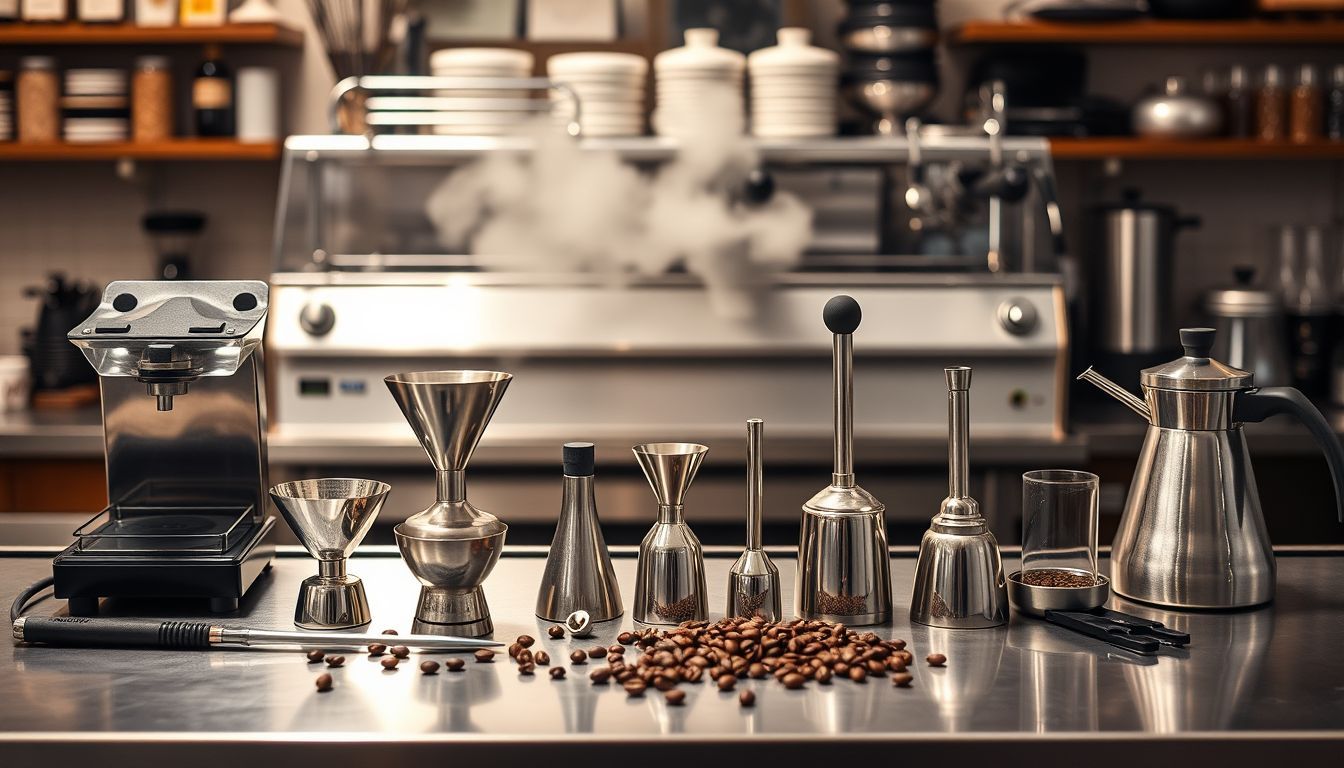How Artificial Intelligence Is Revolutionizing Coffee Quality Control and Bean Selection
Explore how artificial intelligence is transforming coffee quality control and bean selection, enhancing precision, consistency, and sustainability in every cup.

Amazon Affiliate Disclosure
This post contains affiliate links. If you purchase through these links, we may earn a small commission at no additional cost to you.
How Artificial Intelligence Is Revolutionizing Coffee Quality Control and Bean Selection
In the quiet corners of coffee farms and the bustling floors of roasteries, a silent revolution brews. Artificial Intelligence (AI), once the realm of science fiction, now intertwines with the age-old art of coffee cultivation and processing. This fusion of technology and tradition is reshaping how we perceive and experience our daily cup.
The Dawn of Precision: AI in Coffee Cultivation
Nurturing the Bean from the Ground Up
The journey of a coffee bean begins long before it reaches our cups. AI has permeated the fields, offering farmers tools to monitor and enhance crop health. Drones equipped with AI algorithms survey vast plantations, identifying signs of disease or pest infestations with remarkable accuracy. This early detection allows for timely interventions, preserving the quality of the beans and ensuring sustainable yields. (digest.coffee)
Predicting Perfection
Beyond monitoring, AI assists in predicting optimal harvest times. By analyzing climate data, soil conditions, and plant health, AI models forecast the precise moment when cherries reach peak ripeness. This precision ensures that only the finest beans are selected, laying the foundation for exceptional coffee.
The Art of Selection: AI in Bean Grading
Seeing Beyond the Surface
Traditionally, the grading of coffee beans relied heavily on human expertise—a meticulous process prone to subjectivity. Enter AI-powered optical sorting machines. These systems scan beans at high speeds, detecting defects such as discoloration, size irregularities, or insect damage with unparalleled precision. The result is a consistent selection of high-quality beans, free from human error. (famebst.com)
Molecular Fingerprinting
Innovations like Demetria's AI platform delve deeper, analyzing the chemical composition of green coffee beans. By creating a unique 'fingerprint' for each bean, AI can predict flavor profiles and quality attributes before roasting. This proactive approach streamlines the grading process, ensuring that only beans meeting specific standards proceed to the next stage. (baristamagazine.com)
The Roaster's Symphony: AI in Roasting
Harmonizing Heat and Time
Roasting transforms green beans into aromatic treasures. AI-driven roasting machines monitor variables such as temperature, time, and airflow, making real-time adjustments to achieve desired roast profiles. This level of control ensures consistency across batches, allowing roasters to replicate flavors with precision. (qahwaworld.com)
Crafting Unique Blends
In Finland, Kaffa Roastery collaborated with AI consultancy Elev to create 'AI-conic,' a blend developed entirely by AI. By analyzing flavor profiles and bean characteristics, AI formulated a unique combination that surprised even seasoned roasters. This experiment highlights AI's potential to innovate within the realm of coffee blending. (apnews.com)
Brewing the Future: AI in Quality Control
Real-Time Quality Assurance
AI's role extends beyond roasting into the final stages of coffee production. Multispectral imaging, combined with AI algorithms, allows for real-time quality assessment of beans. This technology differentiates between regular and specialty-grade beans without destroying samples, ensuring that only the best beans make it to consumers. (newfoodmagazine.com)
Enhancing Traceability
AI systems compile comprehensive data throughout the coffee supply chain, from farm to cup. This traceability ensures transparency, allowing consumers to trace their coffee's journey and verify ethical sourcing practices. Such insights foster trust and appreciation for the complexities behind each brew. (baristamagazine.com)
The Human Touch: AI as a Collaborative Partner
Augmenting Expertise
While AI introduces efficiency and precision, it does not replace the human element. Instead, it serves as a collaborative partner, augmenting the skills of farmers, roasters, and baristas. By handling repetitive tasks and analyzing vast datasets, AI frees professionals to focus on creativity and innovation, enriching the coffee experience.
Democratizing Quality
AI's accessibility levels the playing field, allowing small-scale farmers and roasters to achieve quality standards previously attainable only by larger operations. This democratization fosters diversity in the coffee market, bringing unique flavors and stories to the forefront.
Conclusion: A New Chapter in Coffee's Story
As we savor our next cup, it's worth reflecting on the journey from bean to brew—a journey now guided by the invisible hand of artificial intelligence. This technological embrace does not diminish the artistry of coffee; rather, it enhances it, ensuring that each sip carries the legacy of tradition and the promise of innovation. In this harmonious blend of human passion and machine precision, the future of coffee unfolds, rich and full-bodied.
---
Note: The insights and examples provided in this article are drawn from various sources, including reports on AI applications in coffee cultivation, processing, and quality control.

Ben Carter
I spent the first part of my life learning the language of the wild—the rustle of leaves, the silence of snow, the resilience of a lone tree. In my writing, I try to translate that language, exploring how the landscapes around us shape the landscapes within us. My stories are quiet, but I hope they speak to a deeper part of you.


